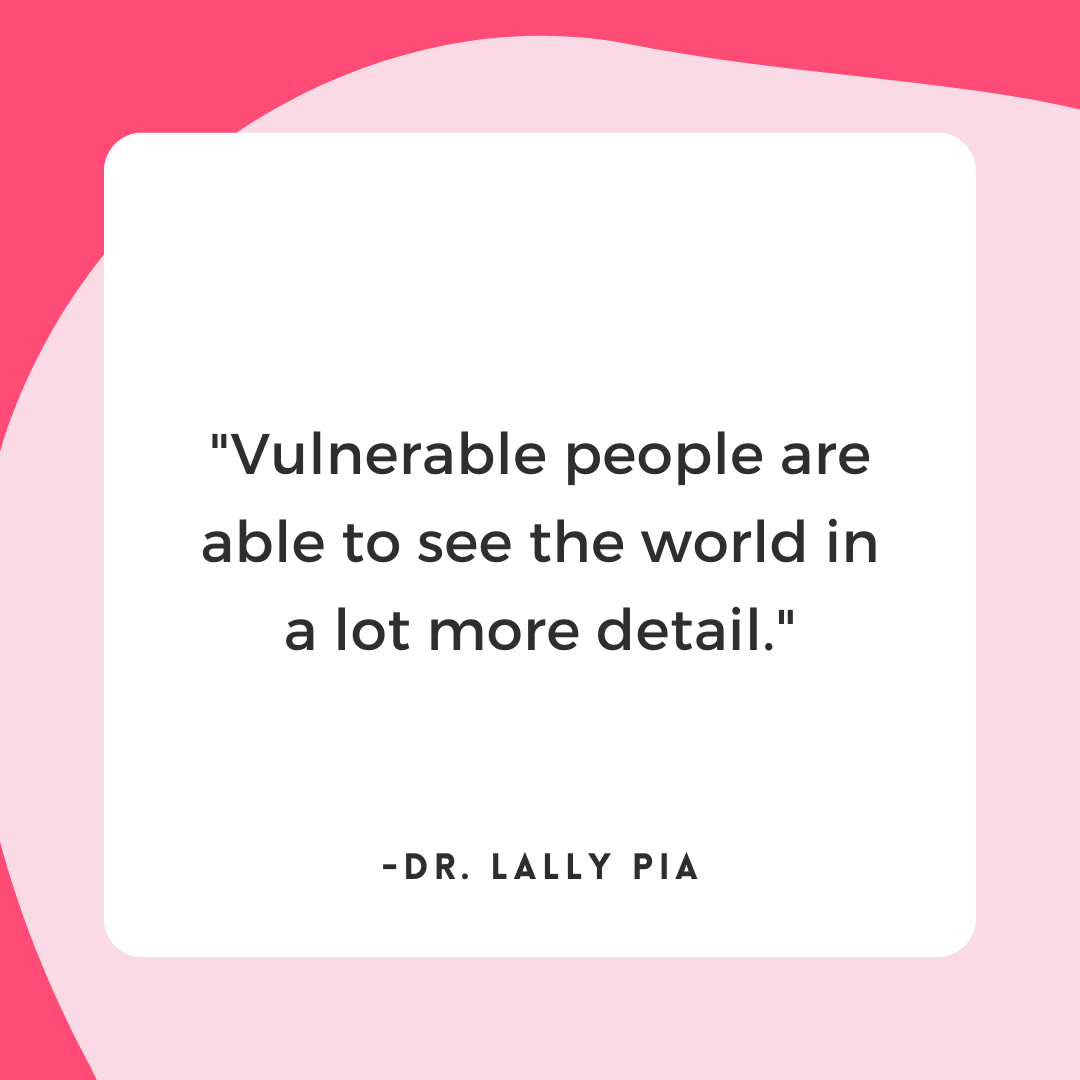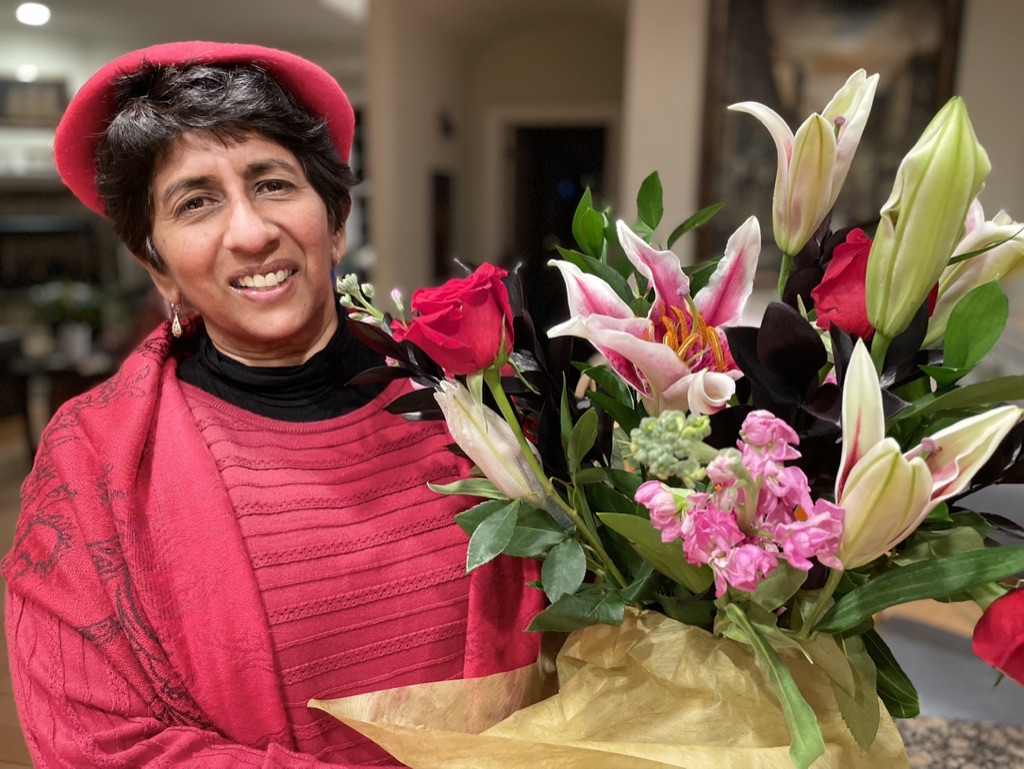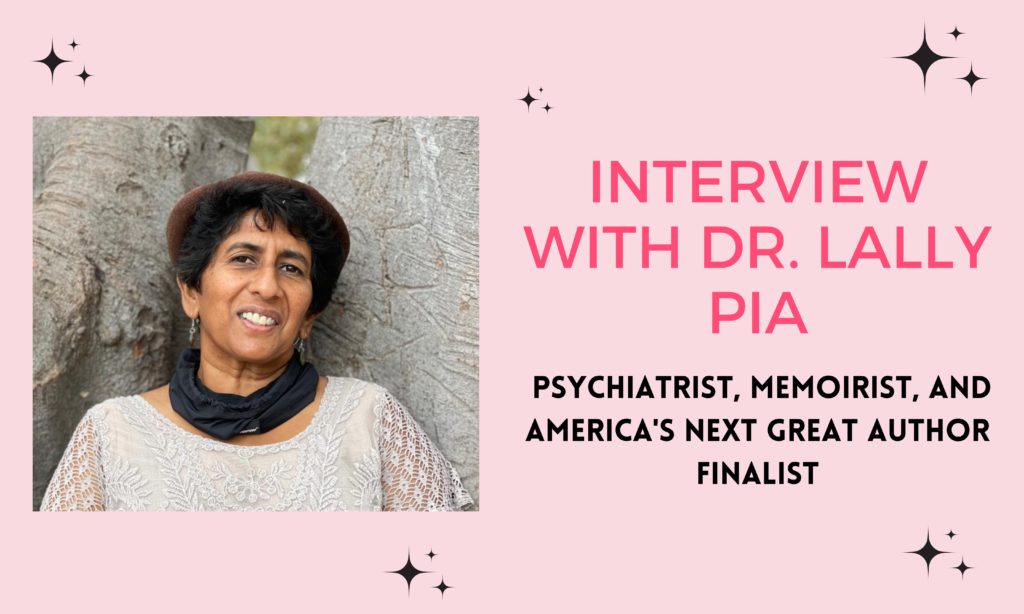I’ve been wanting to start a podcast for a little while, and though that isn’t (currently!) feasible…
I found an alternative way to fulfill that creative impulse and I can’t wait to share it with you all.
I’m starting a monthly interview series through my blog and newsletter! Each month, I’ll be talking to a different mental health professional, entrepreneur, or creative. We’ll learn actionable ways we can improve our personal lives and feel inspired by the interviewees’ journeys — from overcoming unimaginable challenges to embracing unapologetic self-expression.
The ultimate goal of this creative project is to remind us that, despite our different stories and paths, we’re all woven together by our common threads of humanity.
Our first guest is Dr. Lally Pia, a psychiatrist in Sacramento, California, and also an incredibly talented writer. She’s the author of the forthcoming memoir, The Fortune Teller’s Prophecy: A Memoir of an Unlikely Doctor, which chronicles her arduous path to becoming a psychiatrist. Most recently, Dr. Pia was also a finalist for America’s Next Great Author, a TV pilot.
I had the privilege of meeting Dr. Pia through our local writing group and think she has a remarkable life story that we can all learn important lessons from.
I’ll let the interview speak for itself!
B: What made you decide to write your story into a memoir? Have you always had an affinity for storytelling?
Dr. Pia: I grew up in Ghana and I was a quintessential reader of books. I’d sometimes read three a day when I was a kid. Everyone would call me a bookworm. Like, “Oh, who wants to talk to the bookworm?” [Chuckles.] So, of course, when you start reading a lot, you get stuck being the person who tells the story.
My friends would come to me and they’d all just lie down and say, “Go ahead, tell us a story.”
From the age of 13 to 24, I wrote these long diary entries; I got used to putting down my thoughts. Writing this memoir has been in my mind for about 14, 15 years. Everybody who heard my tortuous path to becoming a physician said, “You’ve gotta write this down. I’ll read it.” I kept hearing it over and over. And honestly, I’m much more of a novelist than a memoirist because I really like exciting stories. So I just put [the memoir] in the back of my mind.
I wrote it once I started to get better at writing; as I worked through all my book clubs and all of that. It just unfolded. And then I just thought, okay, let me just get this memoir out. So that’s kind of how it happened.
B: For sure, your story was very unique. Like you were saying, when you think of the path to becoming a physician, the majority of people maybe took off a year or two between undergrad, then they went straight to med school. But there were so many points in your story in which you didn’t know if you would continue. I think a lot of people would have stopped after the first roadblock or two.
In your memoir, you were very open about the challenges you faced, from being in an abusive marriage to being geographically displaced to experiencing financial hardship.
Was writing about these issues, in a way, healing? Did you feel like it helped you process what had happened?
Dr. Pia: I wanted to say right at the outset that it was not healing. It was actually the opposite. In a way, it was good to write down some of these intense episodes. But as I wrote certain scenes, I was feeling the tension and getting afraid and just wanting to just get out of the house. So it was actually uncomfortable for me.
B: How did you take care of yourself when you were writing and revisiting these really uncomfortable moments?
Dr. Pia: As a psychiatrist, you’re always hearing about traumatic events. Over the years, you gradually learn to disentangle the emotions you’re feeling. When I shut the door to my office, my patients are out of my brain.
You gradually think, “Oh, you know, I’m going to learn to put this boundary.” I have also learned to put that boundary for myself. So if I’m writing something and I’m feeling sadness or fear, I already have my own coping mechanisms.
Maybe I’ll play the piano, go for a walk, talk to friends, or hang out with my husband. So there are many different things I do.
B: Yeah, those boundaries are really important. A big theme I picked up on in your book is the idea of resilience. You continued to move forward despite the setbacks and strife you faced. I’m curious, from your personal and professional perspective, what does “resilience” mean to you?
Dr. Pia: First of all, I think there’s a big cultural aspect. Through my Sri Lankan culture and upbringing in Ghana, I’ve always felt like I’m in this warm cocoon. You’ve got your parents, your family, the neighborhood, the support of everybody. You always feel like no matter what happens, you could go and knock on a door and someone’s gonna help you.
Resilience begins with knowing that it’s not like America where it’s like, “Hey, you’re on your own.” I feel that there’s this initial feeling of, “I belong.” This secure feeling of being in a supportive community begins to percolate and makes you feel like you are gonna be resilient.
To define it, [resilience] is an inner feeling that you aren’t going to despair because you have that creativity within you to find a way out of it; people are gonna help you no matter what. It’s also a belief in your own abilities.
You gradually start building up this feeling that, “Hey, I managed to get through one hardship.” And when there’s another one, you look around for the handholds and you slowly make your way up. The next time you might fall again because you slipped on a handhold. But you know where that first one was or that third one was. And that, to me, is the building of resilience.

B: Definitely! I love the handhold metaphor. To switch gears a bit, I want to chat more about America’s Next Great Author — congrats on being a finalist, by the way! What was your experience like with that whole process?
Dr. Pia: In 2015, I started pitching when I was brand new and went to The Book Doctors, Arielle Eckstut and David Henry Sterry.
They got me into a Pitchapalooza, as they call it. They not only listened to [my pitch], but they wanted to critique me. So they critiqued it and told me what I could do to improve.
I subsequently went to a Pitchapalooza in March 2020. They picked my pitch as one of the 10 that they critiqued. They beat up on it and critiqued it and so on. I was so excited, like “Wow, they selected mine out of all the ones they got!”
Regarding America’s Next Great Author, it was something that came in the mail that said, “Hey, are you interested in pitching?” I hate reality shows. [Laughs.] And this sounded like it was gonna be a reality show.
I was like, “Oh God, please no.” But I knew David and Ariel were also going to be involved. And I love Grant Faulkner from NaNoWriMo, who was gonna be a judge. I thought, “How bad can it be?”
They needed a 75-second video. So, in the spur of the moment, I just did one take to pitch my memoir and sent it in. I waited and waited and suddenly they said, “You’re a semi-finalist!”
I found out later that 800 semi-finalists were also gonna be coming from all over the country. I just jumped at it because I thought, at the very least, I’ll see all these other writers since writing is such a solitary thing. I thought I could at least pick up something from people, whether they picked me or not.
I flew over to New Jersey and the first couple of days we just practiced our pitches with each other and it was so cool. Everybody was talking about where they came from. There were people from 49 out of the 50 states.
They were all so friendly. And I kept thinking, “This is my gang.”
For the actual experience, we all went into this huge library — 75-80 of us. They said, “Ladies and gentlemen, we are going to call the finalists.” Imagine how nervous we were because there were only 20 [finalists] out of so many of us.
So they said, “Our first contestant is a psychiatrist…” And I’m like, “Nooo, not me!” They selected me first! I was excited and nervous as heck. Everyone cheered and several of the judges told me I was in their top five.
One of the best parts came afterwards, when Gant Faulkner interviewed the finalists. I’ve never been on “TV,” but this was TV! I went into a room with all the cameras and these lovely couches, and Grant was an excellent interviewer. Actually, he said he’s gonna give me a blurb for my memoir!
I really enjoyed the whole process much more than I thought. I figured it was gonna be some ridiculous TV thing, but it was much more. I didn’t win, but I’ve got all these new friends.

|
B: Yeah, that sounds like such a supportive environment. That sense of camaraderie is essential for us writers. Before we go, I’d like to know: what advice would you give to somebody who wants to share their story but feels afraid to do so? How can we overcome the fear of being seen for who we really are? Dr. Pia: I think it’s very important to be vulnerable. Vulnerable people are able to see the world in a lot more detail. In other words, let’s think of those who are very anxious, like I used to be. You’re aware of every little thing; you’re sensitive to the world. So, I would say to embrace your vulnerability. When you write and you utilize that vulnerability, you’re able to make much more of an impact because it gets into your writing that you’re vulnerable. This makes people captivated. So when someone shares a story or like, let’s say it’s my patients and they’re sad and crying, it makes me more invested in the story. I know people have a hard time getting into a place where they can be vulnerable and share. But you need to practice. Go to book clubs, conferences, speak to a therapist. And write in a diary because this lets you put your emotions down. When you do this repeatedly, you get more comfortable doing it. The first step forward is scary, But as time went on — and we’re talking years — I found that just by doing it, you build so much more confidence. The last thing I’ll say is to focus on the message you wanna give. Consider what drives your novel or whatever you want to say and remind yourself: “This will really make a difference.” That can really get you going. That’s what drove me. Bio: Lally Pia, MD, earned her medical degree at U.C. Davis and completed her Adult Psychiatry training in San Mateo, as well as a Child Psychiatry fellowship in Davis, California. She currently works as a child and adolescent psychiatrist at the River Oak Center for Children, a nonprofit mental health clinic in Sacramento, California. In addition to her work, she volunteers to teach medical students at California Northstate University Medical School and previously served as an assistant professor, running the psychiatry program there from 2017 to 2019. Her debut memoir, The Fortune Teller’s Prophecy: A Memoir of an Unlikely Doctor, was awarded a publishing contract at the 2022 STEM (SparkPress Toward Equality in Publishing) writing competition in November 2022 through She Writes Press and Spark Press. It is scheduled for publication in April 2024. Dr. Pia is also working on another project, Andorea, a psychological suspense novel in which a jail psychiatrist must make an ethical choice: tell what she knows and lose her license, or remain quiet and allow an innocent man to face death. Dr. Pia has workshopped her manuscripts at Manuscript Bootcamp events in February 2018 and November 2019, and is a member of various writing groups, including the Davis Writers Salon, the California Writers Club (Sacramento), the Elk Grove Writers Guild, and the Fremont Area Writers Group. “Gateway,” an extract from her memoir, received Honorable Mention in a Writer’s Digest competition in 2022. She also provided a workshop to the Elk Grove Writers called “Seeing Through Your Character’s Eyes” on June 25, 2022, and pitched her memoir as a finalist in the nationwide talent search for America’s Next Great Author in October 2022. Dr. Pia is married and has two daughters, two granddaughters, and a pet lamb dressed up as a gigantic German Shepherd. When she’s not reading or writing with her writer friends, she enjoys taking walks, playing Scrabble and piano, and taking weekend trips with her husband, who is an accomplished trumpet player and musician. Publications “Day in the Life of a Psychiatrist” (video interview) “Gateway.” California Writers Club (Sacramento) Visions Anthology (2022). “Citizenship.” CWC Literary Review anthology (2022). “Journey to the Underworld.” Fremont Area Writers, Ink Spots Volume 124, (pg. 20) 10/9/2022. “Why Uncle Fred Isn’t Allowed to Garden Anymore.” Elk Grove Writers Guild newsletter. Vol 1, Issue 6 (pg. 5) 7/2021. |

